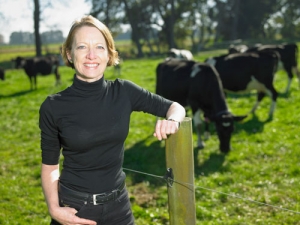The 'businessman' who threatened the NZ dairy industry with 1080 contamination in baby formula if use of the pest-killing poison wasn't terminated apparently intended to gain economic advantage for a product of his own.
If he is found guilty, the maximum sentence for the charges is 14 years imprisonment. At the arrest, Police Commissioner Mike Bush stated: "Today's development sends a
clear message on how seriously we take threats of this criminal nature and how we will use every resource, no matter how long it takes, to [meet them]."
The total cost to the police by October was over $3 million; to the dairy industry it was considerably higher because of extra testing and security measures. Estimates for the security guards for Fonterra alone are over $15 million – money that could otherwise have been returned to the shareholders.
At the time, public sentiment appeared to indicate less understanding of the 'businessman's' action motivated by financial gain than of activism against 1080. Outrage was high at greed endangering the dairy sector; ideology is easier to comprehend.
Now the dairy industry is dealing with activism by Farmwatch and SAFE against production systems, at the same time as these groups are claiming victory in a change in sow management.
NZ pork producers now have the highest standards for sow breeding units in the world. They also have a declining share of the pork product market in NZ, as more and more consumers buy imported, cheaper, pork products. Just like egg producers, pig farmers are doing what society said it wanted, and watching consumers choose product from production systems they have said they don't want – because of price.
For dairy it is difficult to understand what SAFE really wants. Certainly there is never any excuse for cruelty – not with farm animals, pets, children or partners. Certainly NZ has strict codes of animal welfare to which most animal handlers adhere. And the petfood company involved in the bobby-calf issue has been upfront in saying that the behaviour filmed by SAFE was not acceptable which was why the people involved had been sacked.
But SAFE has still run the 'dairy cruelty' advertisement in the UK newspaper The Guardian.
Dairy product exports to the UK are small. Social media, however, has a big reach and the advertisement is damaging to our reputation. If the image 'takes off', questions will be asked about European production systems; because all dairy production systems involve separating mother and offspring, answers won't be easy to find.
The bigger agenda for SAFE could be a drive towards veganism – to give up animal production systems altogether. Producing enough high quality protein for the ever-increasing global population would be the challenge, and improved cropping technologies would be needed in order to minimise environmental impact on soil and atmosphere. The problem with crops is that they need nutrients and water, and must be protected from pests and diseases – as do animals. The animals, however, yield high quality energy and protein and can be grown almost anywhere whereas crops are restricted to cultivatable land.
Adding poultry into the diet with eggs and meat increases the quality of human intake efficiently, but grain is still needed, and grain is a crop.
There are no easy answers.
In Auckland protein shakes are being consumed instead of milk - with no comprehension of where the protein in the shake originates (usually whey).
The fundamental problem is clearly lack of understanding about how food is produced and the innate nature of the stewardship and husbandry relationship with the soil, plant and animal.
Reputational damage used to result in 'pistols at dawn'. The modern day equivalent might not be 14 years imprisonment, but should be investigated; the potential cost to the global dairy industry is high.
• Jacqueline Rowarth is professor of agribusiness, The University of Waikato.



















